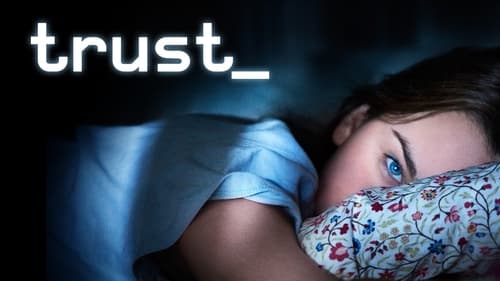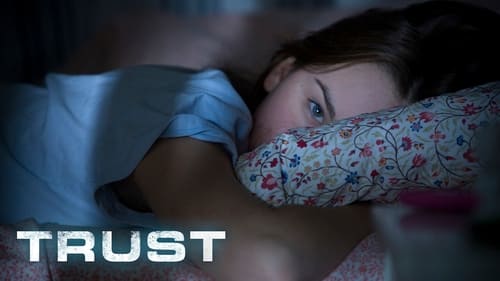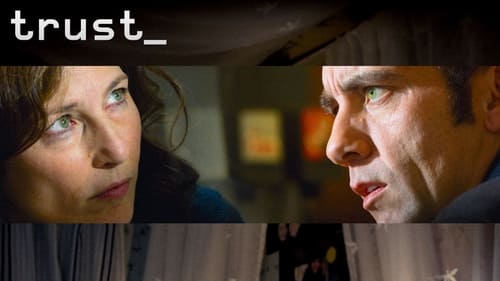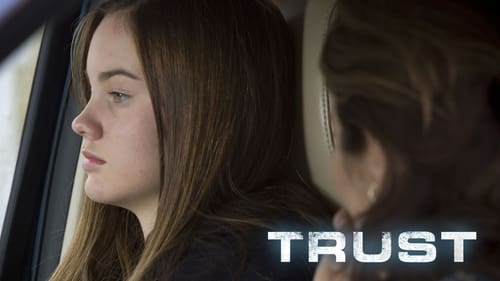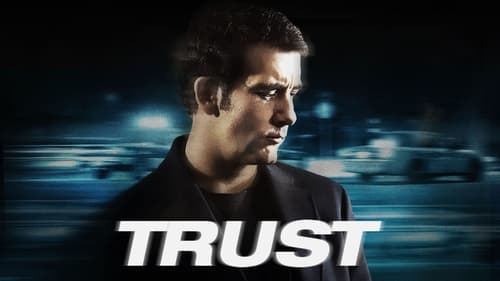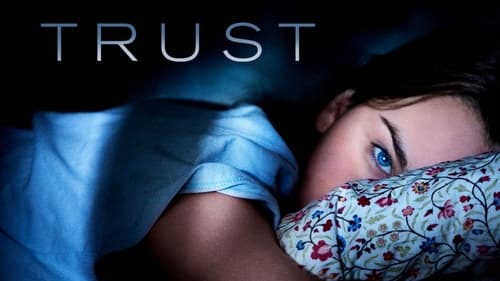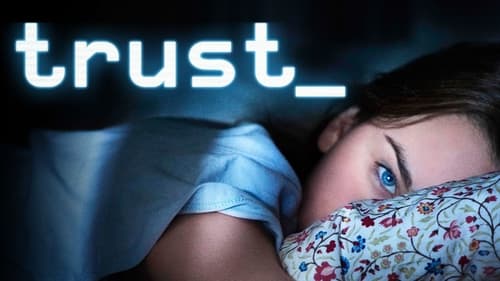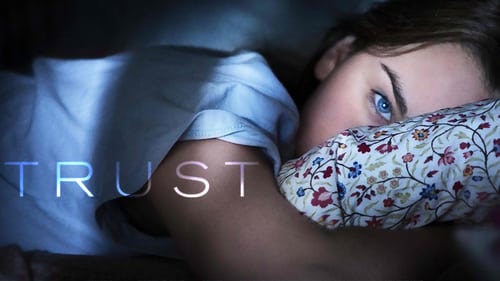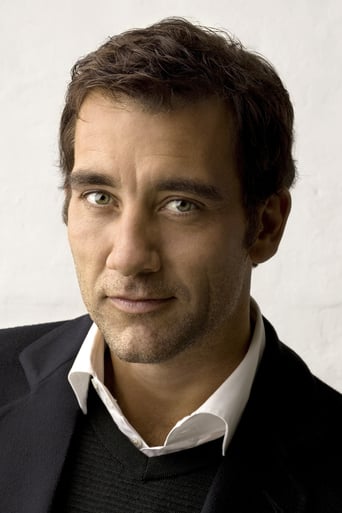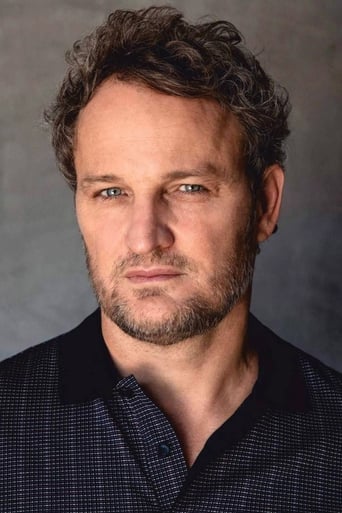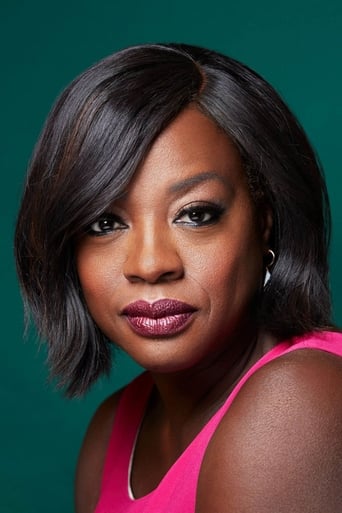ChanFamous
I wanted to like it more than I actually did... But much of the humor totally escaped me and I walked out only mildly impressed.
Anoushka Slater
While it doesn't offer any answers, it both thrills and makes you think.
Married Baby
Just intense enough to provide a much-needed diversion, just lightweight enough to make you forget about it soon after it’s over. It’s not exactly “good,” per se, but it does what it sets out to do in terms of putting us on edge, which makes it … successful?
Celia
A great movie, one of the best of this year. There was a bit of confusion at one point in the plot, but nothing serious.
blrnani
It isn't a great movie, but I think it is about such an important topic that I recommend people watch it anyway. I agree with colleagues on here who describe it as almost documentary like in its portrayal of this family tragedy.
Not only does it show up the dangers of paedophilia and how these sick monsters use the internet to groom and subvert kids.
You also have the father who is in such a rage and filled with recrimination that he failed to protect his little girl that he can't even think straight anymore. And you see the difficulty when his concern for his family distracts him from his work, to the point of threatening his professional career. Moreover, he starts to look at his own work, often portraying young women as objects of sexual desire in his advertising campaigns, through new eyes.
Then you have the perverse high-school values, where so much self esteem hangs upon being in with the cool crowd and sexually desirable. The able pervert (shockingly, himself a teacher) is able to play on all the teenage angst to further his own ends, pushing the right buttons when his intended victim learns he is not a 16-year-old high-school kid, but a 20-year-old college undergraduate, no wait, a 25-year-old graduate and finally, on meeting him, a 35-year-old adult. You'd think with those progressive shocks she'd have run, fast, but by then she'd been convinced they were soul-mates in love. So when her worried best friend goes to the school administration, which in turn leads to police and then FBI involvement, our heroine feels betrayed and her 'perfect love' has been irredeemably spoiled.
Then it finally dawns on her, thanks to FBI matches, that her 'Charlie' is a serial predator who was only interested in sex with her (which he filmed - one wonders where he keeps those and how he keeps them from his family's prying eyes) and her confidence comes crashing down.
At this point, high-school cruelty (surely among the most savage environments on the planet!) comes into play, driving her towards suicide.
I won't give away any more of the story, but just mention Viola Davis' excellent portrayal of the psychological counselor, who has to tread a very cautious non-judgemental line. Vitally, she is the one the girl turns to after the initial crash. And best friend Zoe Levin, who is always there for her, even when treated badly for 'ratting her out' - everybody needs friends like that!
etsiap
Contains Spoiler . . .Liana Liberato was was around 15 years old acting in this movie. As the story unfolds, the father's ad agency sexualized kids, and the father started to realize this sobering fact after his daughter was sexually assaulted. The movie Trust sexualizes Liberato in real life just like the story line. I appreciate Schwimmer's reason to make the film, but I wonder if he ever thought . . . holy crap I'm adding to the mess.
borimor
I didn't know what to expected from this movie, one thing is certain, I was pleasantly surprised by David Schwimmer movie. The movie is about a teenage girl from a good family that targeted by an online sexual predator. The subject of online predators didn't investigate enough by Hollywood, and Schwimmer do a nice job by raise the issue. Although the plot focus on the online sexual predator and his victim, the movie is all about TRUST- simple as it sound. How can you live your life, with all the evil out there, and still trust people- not matter if it's a stranger, your daughter, the law enforcement. More than all, the main question is if you can trust yourself?. This's why Trust is more similar to movies like Doubt and Shame, that have a large theme (Pedophilia and Sex Addiction), but the meaning is about a specific emotion or concept (Doubt and Shame). The movie also focus on father-daughter relationship. Will (great acting by Clive Owen), the father, finds it difficult to trust people, it is quite the opposite from his daughter's character, this's what make their relationship so intriguing. The climax happened in the ending, something change, the characters close the circle and understanding their past mistakes. I am little surprise that no one mentioned the similarities between the movie Ordinary People and this movie, especially the ending.In a world that people can hide their true identity by using technology, it's hard to feel safe, in a 'fake world', how can you trust anyone? the real scary thing is, that you must have some kind of trust to keep living, you can't conduct your life with permanent paranoia. Without trust, we left with anarchy- Will character is a great example, few times he break the law. This's what make this movie great, it's not masterpiece, but it's make me think, and this alone worth the money.
sharky_55
It would have been easy to bump Annie's age up or down a few years, either to explicitly spell out the crime or to blur its boundaries. It would have been even easier to make Charlie a little older, a little less handsome, to really steer home the message. David Schwimmer resists this temptation, because his close experiences working as an advocate for rape victims and their families inform him. It's not always so clear cut, the abuser is not going to make his approach with clear signs of shadiness and evil. This message may be startlingly clear for most adults that watch this film, but for the 14 year old Annie, it is a difficult reality to face.Liana Liberato would have been about 15 during filming, and it is a crucial element of her character. Too young, and it is unequivocally a horrifying act of abuse, too old, and the boundaries are blurred and audiences might react like Will's boss does. The film starts off like any teenage set film would; with corny shallow siblings, a cool mum that shouts profanities, a caring but slightly overbearing dad, and of course the rather cringe-worthy school gossip scene that has cliques and parties and a whole world of murkiness that parents want to prevent their child from diving into for as long as possible. Schwimmer could have done better here in the world-building and thus create a bigger impact later. He mistakes risqué in the teen girl dialogue for authenticity, when in reality it is rather unbearable, and the best friend is sorely underused, but rather prodded into scenes in order to further the plot. There are signs of societal enabling that show little tack; Will's boss admires a young waitress hungrily, and later is predictably less sympathetic to the news of rape than Schwimmer would like him to be. There's also the explicit advertising industry that Will works and is forced to re-evaluate. At times it seems he is old (and his son exists solely to point this out), and out of his depth in the increasingly profane new world. Finally, the setting of the school is shallow at best, which makes the whole sub-plot of the cyber-bullying website feel unnecessarily cruel and contrived.There are three great scenes which convince me that Trust can handle this type of issue with maturity and nuance rather than being ham- fisted and insensitive. The first is Annie's confrontation with Will in her room, where the two ideal's clash and he is forced to heartbreakingly retreat when it is clear that she is still convinced of Charlie's genuine and loving intentions. Liberato makes this agonising, because even as we disagree vehemently (as Will clearly does and tries to persuade her), we are saddened deeply that any person would do this to a 14 year old, and even worse, do it so well that she refuses to admit the manipulation. Schwimmer is respectful of her perspective, which is why it is that more heartbreaking when she finally realises what she has been the victim of. It has a much more emotional effect than the screaming matches of Keener and Owen, which seem to be a more artificial conflict created solely to drive Will's increasing madness and hunger for revenge. Still, Lynn's ambitions are motherly, caring and good; she knows that the path ahead is through healing, not anger or vengeance. That paves the way for the second scene, the penultimate talk beside the pool. Many dramas have this type of talk, the reminiscing of older nostalgic times where life was safer, warmer, more cheerful. Clive Owen makes this one work because of his tragic performance where the hardened, protective and raging father crumbles and begs her forgiveness for not shielding her from this harm. There are no offers of a bright happy ending, but one with understanding and healing in time. The final scene is of course that last haunting segment, where Schwimmer uses the found footage hand-held style to present to us the real life of Charlie. Again, it would have been easy to make him haggard, or a creep, or not handsome. It would have been even easier to end with his just arrest and prosecution, maybe even Annie striking a last blow in her testimony. But instead we are dealt a chilling, harsh blow. This man exists somewhere in society, and is even a teacher with daily correspondence with similarly aged kids. It's a bleak reminder that these things happen all too often, and are often more complicated than they may seem. I admire David Schwimmer for tackling this issue with this sort of maturity and emotional impact. It's not perfect, but he hits the right notes where it matters.


